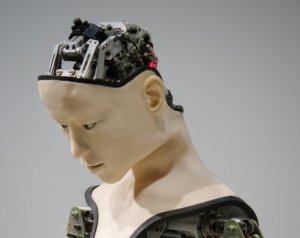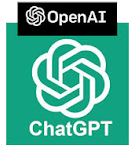“XTX Markets is excited to be launching the AI-MO Prize to spur the development of AI models capable of mathematical reasoning. We look forward to working with mathematicians, scientists and technologists to develop the prizes, and to seeing how AI models compare against exceptional high-school mathematicians.”

A grand prize of $5mn will be awarded to the first publicly-shared AI model to enter an AI-MO approved competition and perform at a standard equivalent to a gold medal in the IMO.
There will also be a series of progress prizes, totalling up to $5mn, for publicly-shared AI models that achieve key milestones towards the grand prize.
The IMO, a highly prestigious high school mathematics competition, is renowned for its challenging nature. Achieving a gold medal in the IMO is an indicator of exceptional performance and potential for future achievements. Historically, many participants in the IMO have gone on to significant achievements in mathematics, including becoming Fields Medalists.
The AI-MO Prize aims to push the boundaries of AI capabilities beyond large language models like ChatGPT, focusing on developing AI models with advanced mathematical reasoning abilities. This challenge could potentially represent a new Turing Test for AI.
The AI-MO Prize will be designed by an AI-MO Advisory Committee, which will include mathematicians, AI and machine learning experts, and experienced Olympiad problem-setters. The first AI-MO approved competitions are set to open to participants in early 2024, with progress to be presented at the 65th IMO in Bath, England, in July 2024. Competition rules and entry criteria will be released in the future.
“How AI models compare against exceptional high-school mathematicians”
Gregor Dolinar, President, International Mathematical Olympiad, commented: “Using hard mathematical problems as a benchmark to determine if AI can match the highest cognitive functions of human beings is a wonderful idea. Every year, more than 600 of the best students from more than 110 countries are challenged with six extremely difficult IMO problems, typically only one or two students solve all six IMO problems in the allotted nine hours. I am sure that many people will be following the AI-MO Prize with great excitement, to see when, in the future, AI will match the world’s brightest young minds.”
Terence Tao, UCLA, Fields Medallist, commented: “Despite recent advances, using AI to solve, or at least assist with solving, advanced mathematical problems remains an incredibly complicated and multifaceted challenge. It will be important to experiment with multiple approaches to this goal, and to benchmark the performance of each of them. The AI-MO Prize promises to provide at least one such set of benchmarks which will help compare different AI problem solving strategies at a technical level, in a manner that will be accessible and appealing to the broader public.”
Geoff Smith, Former President, International Mathematical Olympiad and AI-MO Prize Advisory Committee Member, commented: “The ability of modern AI systems to create a facsimile of a human when engaging in a written exchange is remarkable. However, this works best when there is a large corpus of relevant material already placed on the internet by people. It will be a far more demanding task to mimic a creative mathematician as they engage in abstract reasoning. The global IMO community will be delighted to be involved in supporting this competition, as we seek to measure AI systems against the best young mathematical minds.”
Simon Coyle, Head of Philanthropy, XTX Markets, commented: “XTX Markets is excited to be launching the AI-MO Prize to spur the development of AI models capable of mathematical reasoning. We look forward to working with mathematicians, scientists and technologists to develop the prizes, and to seeing how AI models compare against exceptional high-school mathematicians.”
Πηγή:




























Δεν υπάρχουν σχόλια:
Δημοσίευση σχολίου